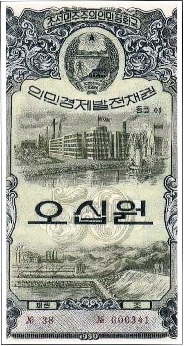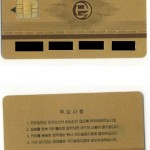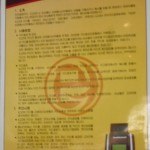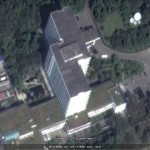Chico Harlan writes in the Washington Post:
Recent North Korean defectors in South Korea sometimes joke that their transition to capitalist life begins with two key steps. First, they buy a smart phone. Then, they get a lesson about phone banking.
With those two things, defectors can then transfer money back to North Korea, where many still have family or friends. The money doesn’t go directly to the North; rather, it’s channeled through a series of brokers, routed through China, and trimmed by handling fees and commissions.
But as underground systems go, this one is quite functional. Some 50 percent of North Korean defectors have transferred money back home. Those who try once almost always do it again.
Just a decade ago, almost no money flowed back to the North in the form of remittances. But the number of defectors here has skyrocketed, and the amount of cash they send back home has surged as well.
Some 23,000 defectors now live in South Korea, with the number jumping more then 2,500 every year. (Just 12 years ago, a total of 1,400 North Koreans lived in the South.)
The defectors don’t make much money — about $1,000 per month on average — but that doesn’t stop them from sharing it generously, shipping it back to a country where $1,000 can feed a family for a year.
According to a January 2011 survey from the Database Center for North Korean Human Rights, some 56 percent of defectors who send money give more than $900 (1.01 million won) annually. Another 12.5 percent give more than $4,500 (5.01 million won) annually.
North Korea scholar Andrei Lankov, in this April 2011 essay, estimated that the total money given each years totals $10 million–an enormous influx of cash into the extremely impoverished North.
One recent defector, Ju Kyeong-bae, described during a recent interview at his apartment in Seoul how he transfers money to his friends in the North, who live in a village some 25 miles from the Chinese border.
First, one of his friends — let’s call him Mr. Jeong — calls Ju from North Korea, using a Chinese cell phone that gets a signal from towers just beyond the border.
Mr. Jeong provides a telephone number for a broker in China. Ju calls the broker.
The broker then gives Ju the name of a bank in South Korea, along with a particular account number.
Ju determines the amount of money he wants to send, punches a few buttons on his iPhone, and transfers the money, which then pinballs from the South Korean bank to a Chinese bank, using two brokers.
The Chinese bank account belongs to a businessman (let’s call him Mr. Kim) who does frequent work in North Korea — and who holds lots of private wealth stashed away in the North. When Ju’s money lands in Mr. Kim’s account, Kim just lets it sit there. He never withdraws it and takes it across the border. Rather, he distributes money he already has stashed in North Korea to Mr. Jeong, who in turn gets it to the person Ju’s payment is intended for.
Mr. Jeong then places another call to Ju — a confirmation.
“Some of the middle men, I never even know their names,” Ju said. “It’s all based on trust. If you don’t trust the system, you’re better off not even sending money.”
According to the 2011 survey of defectors, the commission on transfers is generally between 21 and 30 percent. It’s almost never higher than 50 percent. Some 90 percent of defectors say they receive a phone call from their friend or family member confirming that they received the payment.
One of every two defectors thinks his or her money transfers will spark admiration toward the South. About one in every 10 thinks the money will raise resistance against North Korean society.
South Korea technically bans the transfers, but an official at Seoul’s Ministry of Unification, which handles North Korea policy, says that the government has little incentive to stop the remittances.
“They fall into a gray area,” said the official, requesting anonymity because he was unauthorized to speak about the policy on record. “We always say no money should be sent to North Korea in case it is diverted for military purposes. But in this case, we’re not talking about huge amounts. And it’s for humanitarian purposes. So long as that’s the case, we won’t pursue it.”
Additional posts on remittances:
1. ROK moves to control inter-Korean remittances (2011-5-26)
2. ROK seeks to gain greater control of sanctioned cash flows to DPRK (2011-05-25)
3. Remittances from North Korean defectors (2011-4-21)
4. Defectors remit US$10m a year to DPRK (2011-2-23)
Read the full story here:
North Korean defectors learn quickly how to send money back home
Washington Post
Chico Harlan
2012-2-15




